Black Widow (2021)
Directed by: Cate Shortland
Written by: Eric Pearson, Jac Schaeffer, Ned Benson
Starring: David Harbour, Florence Pugh, Rachel Weisz, Ray Winstone, Scarlett Johansson
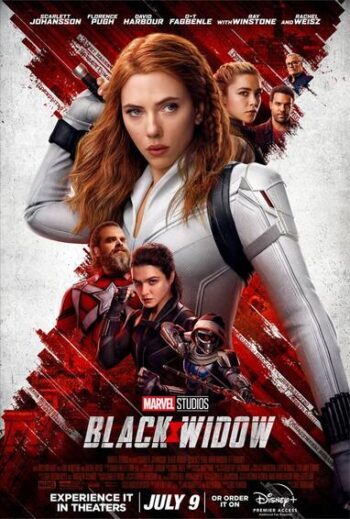
BLACK WIDOW (2021)
Directed by Cate Shortland
There’s a bit in Endgame where Peter Parker gets saved by a full roster of the MCU women, including (among others) Scarlet Witch, The Wasp, and Pepper Potts. Presumably, this was meant as a statement about how kicking ass knows no gender. Still, it was a gesture that undermined its point. Casual fans wouldn’t recognise half of them, and only one had fronted their own movie: the dismal Captain Marvel that patronisingly revolved around her learning to control her emotions. So finally, after being a recurring sidekick since the second Iron Man, Natasha Romanoff (Johansson) gets her turn.
Ah, but isn’t she dead? Yes, this movie takes place after Captain America: Civil War, but before Infinity War. While the gang was hiding out, before emerging once again in glorious Edinburgh, she went to take on the Red Room: a child trafficking organisation that aims to raise the next generation of killers, i.e., Black Widows. “Girls,” the new villain Dreykov (Winstone) mutters, “the one natural resource the world has too much of.” Their alumni include both Natasha and her “not real” sister Yelena (Pugh). The latter was among the greatest assassins in the world before one of her would-be victims sprays something red in her eyes that awakens her from decades of mind control. After an eventful reunion, the sisters set out to find their ‘father’ Alexei (Harbour) and ‘mother’ Melina (Weisz) to take down the Red Room once and for all.
Of course, all films ought to be considered on their own merits. Yet it’s difficult to divorce a new Marvel movie from the 23 that have come before it. The character journeys are like ones you’ve seen before – a buddy narrative in which opposites learn to appreciate each other. The action scenes are similar too (though with an Eastern European angle), and the characters offer little new. As a result, Black Widow feels like Marvel is going through the motions. This isn’t necessarily a bad thing – the set pieces are still reasonably spectacular, with a brief one towards the end being the clear standout. There is also a genuine sense of peril to the prologue, as the surrogate family flees Ohio for Cuba. And though the stakes are lower than other films in the franchise, the writers manage to find an emotional hook – the relationship between Natasha and Yelena.
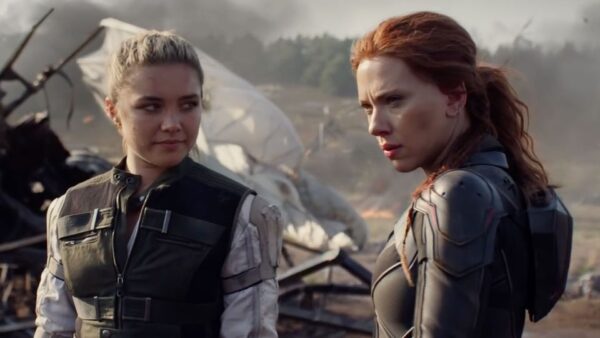
Florence Pugh is fast becoming one of the most reliable actors in Hollywood, and here really elevates the material. She supplies most of the humour by bluntly punching her way through the fourth wall to point out how ridiculous The Avengers are. However, her longing for real familial relationships also gives the movie its beating heart. Where her sister is cold, Yelena is warm, and it’s rewarding to watch their bond grow. Then there’s mum and dad. While the second act feels a bit like a long fetch quest, it’s also the most substantial part. Both Harbour and Weisz have a decent screen presence, and while the dysfunctional “family” scenes may not do a lot for Russian representation, mainly consisting of communism and vodka, they are perhaps Black Widow at its best. We’ve seen Natasha survive all sorts, and we know she can’t get killed this time around. However, she’s made more vulnerable by having people she cares about in her life, no matter how much she’d deny it.
Their scenes also characterise Natasha beyond the blank slate we’ve previously known her: a physically strong femme fatale with an unknowable but entirely expected history of doing bad things. On that, we finally learn what one of these things is. And though the movie goes to lengths to soon excuse her actions, I think it’s an example of knowledge gained from a spinoff enriching the main series – take that Solo. It’s also a testament to Johansson that she’s never not the centre of attention even when surrounded by skillful comic performances. This is Natasha’s film, and the rest are along for the ride. However, a good hero requires a good villain: an area Marvel has historically underperformed. Black Widow is no exception, with “that’ll do” characterisation and a thematically confused allegory.
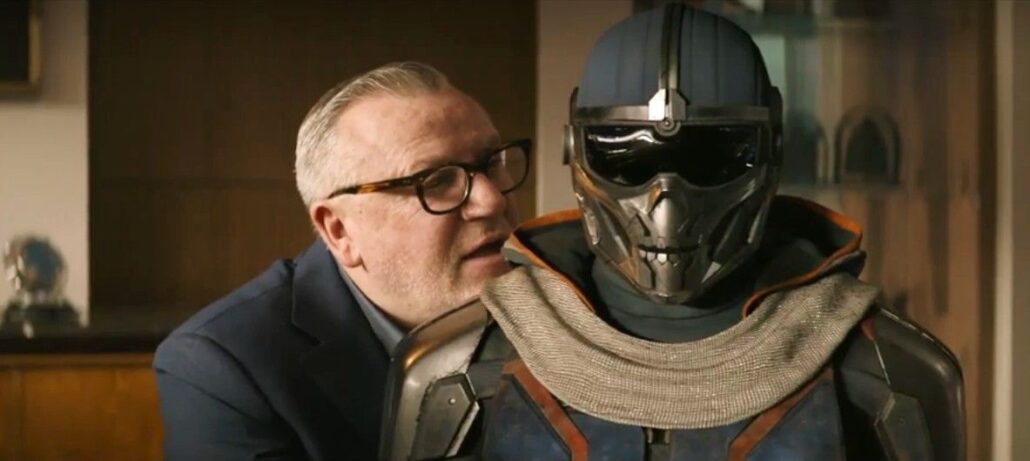
It’s hard not to think of Harvey Weinstein when watching Dreykov literally coercing women. Yet it’s all very surface level, never interrogating where this entitlement comes from, and there’s something bad taste about the darkness of a child trafficking plot being used as the context for a generic female empowerment tale. And in a trafficking context, what is the red spray meant to be? It strikes me that one can do a film about women coming to understand they are being manipulated, or one on child trafficking, but the same MacGuffin shouldn’t be at the centre of both. The bit where it is suggested implied real-world leaders are complicit in the Red Room is interesting in the days since Epstein was arrested, even if they play to some of the worst conspiracies. Still, it’s another angle that’s not developed enough.
It’s unfortunate, as there’s such potential to Black Widow – but it’s lazier than I thought it’d be. Particularly in a cluttered third act that attempts to introduce dramatic stakes around a host of characters we know nothing about. Passable fights, passable action, passable plotting, passable movie. By this point you’re in fairly safe hands with Marvel, so this is good enough. They’ll rarely do a dud – especially now that the formula is established. It’s not good for Marvel’s image that her colleagues Thor, Captain America, and Iron Man all got trilogies before Natasha got one film – and it’s also unfortunate that this is presumably the last time we’ll see her. Still, for people keen to go back to their local multiplex, I can see them having an enjoyable enough time with it – especially if they’ve already seen Fast 9. And hey, at least it’s not Clint.




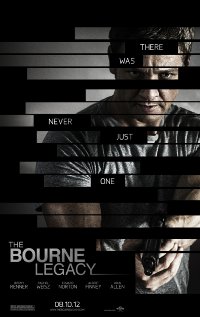
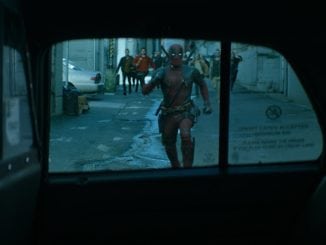
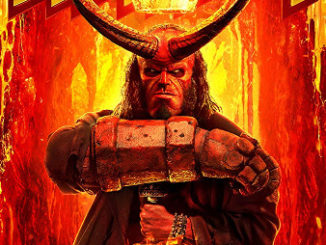
Be the first to comment